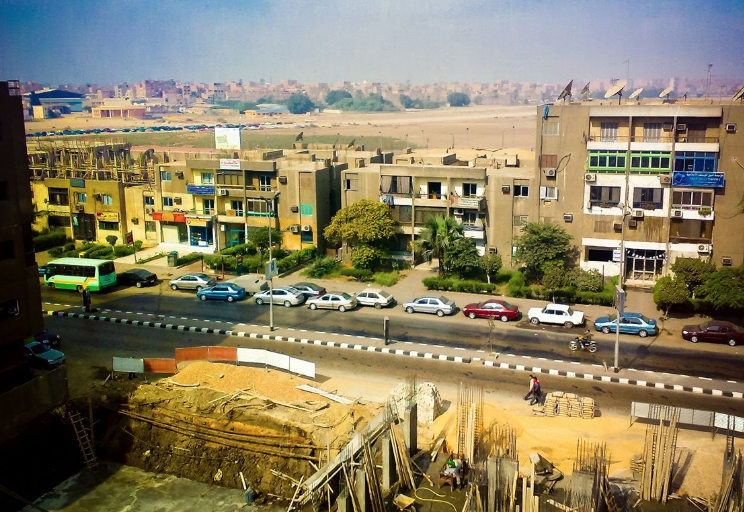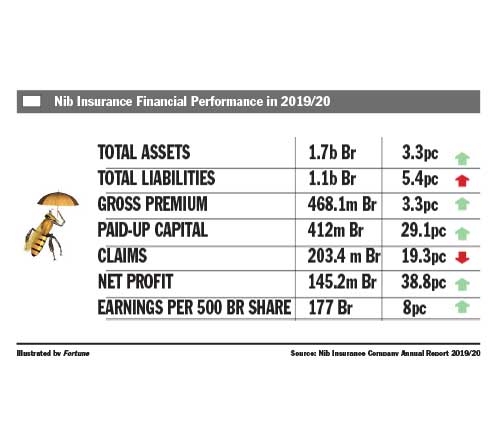
Fortune News | May 23,2020
Jun 26 , 2021
By Christian Tesfaye
The rainy season has begun. In Addis Abeba, it elicits mild disappointment as the season means more mud, colder weather (especially as air conditioning systems are virtually non-existent in households), and flooded streets though, of course, roasted corn by street vendors is a plus.
For subsistence farmers, it means the difference between feeding themselves or relying on safety nets because, like our ancestors centuries or millennia ago, we have to rely on the rain to provide for livelihoods. For the country as a whole, any hint of drought means massive levels of food insecurity. Fortunately, it will be an adequately rainy season this year, and all things equal, agricultural output is expected to hold up.
There is a certain irony when it comes to food security. The countries whose economies are most reliant on agriculture are the likes of Liberia, Somalia, Central African Republic, and Ethiopia. All poor sub-Saharan African countries that nonetheless are highly food insecure, rely on food imports and aid. This is because although most of the labour force is engaged in agriculture, much of them are subsistence farmers. Their productive force is spent tilling the land or raising cattle for consumption by themselves.
On the other hand, most developed countries’ share of their agricultural sector is below five percent. And these few engaged in crop or livestock farming, fishing and poultry are doing it for commercial purposes—to sell to the domestic market or for export purposes— rather than for self-consumption.
No wonder then that Ethiopia wants to wean its reliance on the agriculture sector, which is highly unproductive. They have come up with sensible policies to ensure a structural economic transformation to productive areas of the economy, such as manufacturing. They have built roads, industrial parks, hydroelectric dams and invested heavily in education and public health to create the skilled workforce necessary for a healthy industry, construction and services sector. Indeed, now in Ethiopia, services contribute more to the economy than does agriculture.
But all of this can only go so far. Not enough rain in any given year, then investments in other sectors have to be held back to import food. Otherwise, people will go hungry. Agriculture is a stubborn sector that can not be neglected. It is possible to survive without major industry or services, as has been the case for humanity for millennia, but too low of an agricultural output is a drain on the economy, not to mention a cause of food insecurity.
There are institutions such as the Ministry of Agriculture and the Agricultural Transformation Agency set up to change this reality. Emphasis has been put on the provision of fertilisers and improved seeds; building irrigation systems; and better integrating farmers with domestic markets. One piece of the puzzle remains sadly unaddressed: access to finance for farmers and agri-business.
Farmers are unable to get credit in order to scale up their production through means such as adopting modern farming techniques. This is because they lack collateral—the land they till is not their land per se but belongs to the “public.” It is a scenario that will not change anytime soon.
Coupled with general underdevelopment of the financial sector, this means that less than a fifth of smallholder farmers have access to banking services and only about five percent of loans have gone to the agriculture sector in Ethiopia in 2018.
But there is hope for this gloomy set of circumstances. Instruments such as inventory financing, where a lender holds a farmers post-harvest inventory as collateral, could help scale up, according to the Brookings Institution. The service sector can also help make up for the financial gaps businesses and smallholders are faced with, such as ‘Uber for farming.’
Recently featured by the World Economic Forum, the app Hello Tractor connects farmers with tractor owners, the former renting out the equipment for a fee. It is a service that helps make each farmer that could not afford a tractor be more productive through mechanised farming techniques while helping create a business opportunity for those that happen to have idle tractors sitting around.
PUBLISHED ON
Jun 26,2021 [ VOL
22 , NO
1104]


Fortune News | May 23,2020

Fortune News | Jun 08,2019

Editorial | Feb 15,2020

Advertorials | Jul 17,2023

Commentaries | Jun 07,2025

Life Matters | Aug 06,2022

Fortune News | Feb 20,2021

Covid-19 | Jan 31,2021

Viewpoints | Aug 30,2025

Fortune News | Mar 06,2021

Photo Gallery | 178791 Views | May 06,2019

Photo Gallery | 168988 Views | Apr 26,2019

Photo Gallery | 159836 Views | Oct 06,2021

My Opinion | 137115 Views | Aug 14,2021
Commentaries | Oct 25,2025

Dec 22 , 2024 . By TIZITA SHEWAFERAW
Charged with transforming colossal state-owned enterprises into modern and competitiv...

Aug 18 , 2024 . By AKSAH ITALO
Although predictable Yonas Zerihun's job in the ride-hailing service is not immune to...

Jul 28 , 2024 . By TIZITA SHEWAFERAW
Unhabitual, perhaps too many, Samuel Gebreyohannes, 38, used to occasionally enjoy a couple of beers at breakfast. However, he recently swit...

Jul 13 , 2024 . By AKSAH ITALO
Investors who rely on tractors, trucks, and field vehicles for commuting, transporting commodities, and f...

Oct 25 , 2025
The regulatory machinery is on overdrive. In only two years, no fewer than 35 new pro...

Oct 18 , 2025
The political establishment, notably the ruling party and its top brass, has become p...

Oct 11 , 2025
Ladislas Farago, a roving Associated Press (AP) correspondent, arrived in Ethiopia in...

Oct 4 , 2025
Eyob Tekalegn (PhD) had been in the Governor's chair for only weeks when, on Septembe...

Oct 25 , 2025 . By YITBAREK GETACHEW
Officials of the Addis Abeba's Education Bureau have embarked on an ambitious experim...

Oct 26 , 2025 . By YITBAREK GETACHEW
The federal government is making a landmark shift in its investment incentive regime...

Oct 29 , 2025 . By NAHOM AYELE
The National Bank of Ethiopia (NBE) is preparing to issue a directive that will funda...

Oct 26 , 2025 . By SURAFEL MULUGETA
A community of booksellers shadowing the Ethiopian National Theatre has been jolted b...